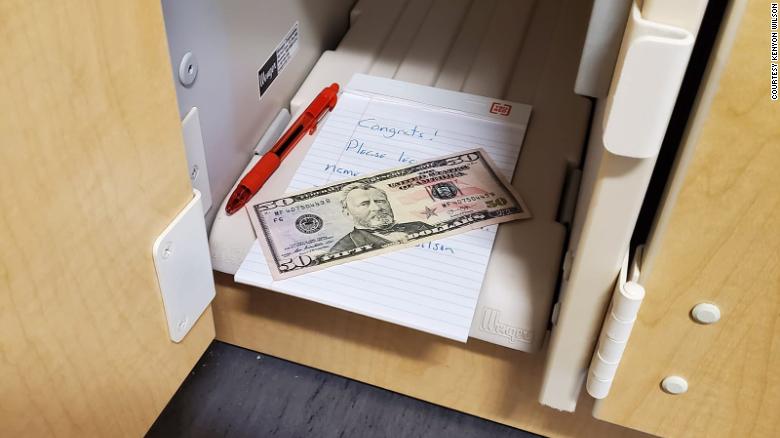Students are presented with various syllabi detailing the contents of their classes at the start of each new college semester. Do pupils read them thoroughly? A professor in Tennessee put it to the test.
Kenyon Wilson, associate head of performing arts at the University of Tennessee at Chattanooga, decided to include an Easter egg in his music seminar class’s syllabus this semester.
Also read: Do you know why we blow candles and cut cakes on birthdays?
The hint read: “Thus (free to the first who claims; locker one hundred forty-seven; combination fifteen, twenty-five, thirty-five), students may be ineligible to make up classes and …”
This would have led pupils to a locker containing a $50 bill, which would have been given away to the first student who claimed it.
However, when he went to check his locker at the conclusion of the semester, the bill was still there.
“It is an academic trope that no one reads the syllabus,” Wilson told CNN. “It’s analogous to the terms and conditions when you’re installing software, everyone clicks that they’ve read it when no one ever does.”
Also read: These five mistakes should be avoided to have a better sleep
There were 71 students in the class. Wilson said that his syllabus doesn’t vary much, although there was some new information this time around with COVID procedures.
“There’s a standard boilerplate that doesn’t change. The university has us put a lot of legal stuff towards the end,” Wilson added. “But on the first day of class I told them there was stuff that had changed, and for them to make sure they read it.”
Wilson left a note inside the locker as he placed the reward: “Congrats! Please leave your name and date so I know who found it.” He also made sure to set the combination lock in the noon position with a certain number to see if any pupils had tampered with it, but the combination was never turned on.
Also read: In an extreme rare case, doctor finds fetus growing inside woman’s liver in Canada
“I had great hopes, and I’d be just as happy having this conversation if one of my students found it in the first week.” Wilson said.
Wilson didn’t check his locker until the semester ended and his final tests were completed.
In a Facebook post, he revealed the unclaimed funds. Students have been “good sports” about it, he said.
Haley Decker, a recent university graduate, has taken Wilson’s seminar-style class for the past three-and-a-half years and was one of the students who failed to locate the hidden cash this semester.
“I honestly thought it was hilarious.” Decker told CNN. “This class typically is the same format every semester, so students know what to expect and don’t take the time to read the syllabus like we should.”
Also Read | Mark Zuckerberg reacts to Iceland’s viral tourism video mocking Meta
“I know my students read, and I don’t expect them to religiously go through word-by-word but if they did, I wanted to reward them,” Wilson said.
“Everyone was guilty of having absolutely no idea it was in there,” Decker said. “We all admitted we briefly skimmed that part of the syllabus because that policy is in every syllabus for every class you take.”
Wilson’s Facebook post not only elicited a response from students, it also inspired other professors and teachers across the country. “Perhaps spring 2022 will be the most well-read syllabi ever,” Wilson noted.






